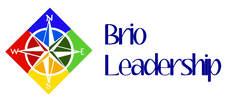 Sleep deprivation is linked to infamous disasters such as the Space Shuttle Challenger explosion that killed seven crew members, the Exxon Valdez oil spill in Alaska, and multiple US Navy ship collisions that also resulted in deaths. Less dramatic in scope, but equally devasting, are the 6,000 or more car accidents per year caused by falling asleep while driving. Not getting enough sleep is definitively linked to slow reflexes, poor decision-making, emotional outbursts, sluggish thoughts and forgetfulness. As reported in the Journal of Occupational and Environmental Medicine, lack of adequate sleep costs companies between $2,500 and $3,156 per employee, per year in lost productivity and poorer performance. Reported in this study, the cost of reduced productivity from inadequate sleep totaled $54 billion per year across the four surveyed companies. Sleep deprivation impacts our personal lives and reduces the effectiveness of our companies, communities and countries. In my leadership coaching practice, I always ask my executive clients how much sleep they are routinely getting. It’s sadly common that they are averaging less than six hours per night. How much sleep does a normal adult need? The research is unequivocal about this: between seven and eight hours of sleep nightly are required for optimal functioning. And, the result of less than six hours of sleep for four days running is akin to drinking too much, according to researcher Dr. Itzhak Fried of University of California at Los Angeles. Plus, the long-term health effects of too little sleep are also well-known; they range from increased risk of cardio-vascular disease, Alzheimer’s disease and diabetes, among other health risks. What can be done about this silent epidemic that is hurting all of us, both at work and at home? There are both individual and organizational remedies. Let’s look at two areas of recommendations:
0 Comments
|
From the desk of
|
Our services |
Our Company |

 RSS Feed
RSS Feed

